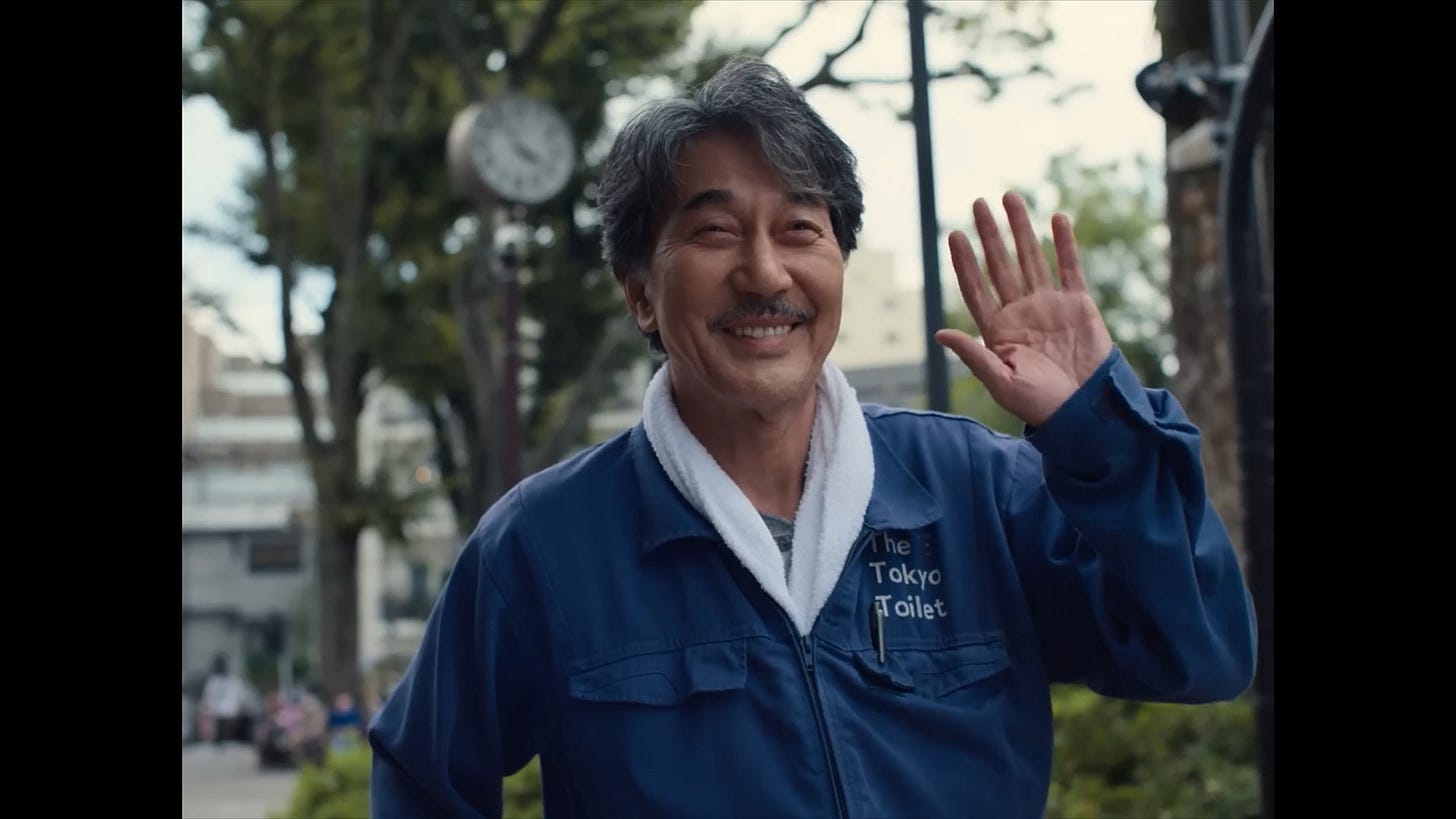'Perfect Days' is the most uplifting film about cleaning toilets you'll ever see
"Next time is next time. Now is now."
You might think a movie about a man who cleans public restrooms couldn’t possibly be one of the most enchanting movies of the year.
But Wim Wenders’ Oscar-nominated “Perfect Days” is an unexpected delight, full of beauty and humor and wisdom, a portrait of a life well-lived. Even if that life includes using a little mirror to help clean under the toilet seat.
Hirayama (Koji Yakusho) wakes up each morning to the soft brush-brush sound of a neighbor sweeping leaves out of the gutter. He goes through his morning routine, piles into his little blue van and heads off for a day of cleaning.
His secret to transcending a life that others might see as drudgery is simply noticing the world around him. He pops a cassette into the car stereo (the expertly-curated soundtrack includes songs by The Velvet Underground and Patti Smith), and his face softens as he sees the sun rise out the windshield. He treats his work seriously, and says little.
And he takes time to observe, whether it’s the strangers who use the facilities or the way the light hits the trees in the public park where he eats lunch. On his days off, he sticks to a similar routine, eating the same thing at the same bars and restaurants, shopping at the same bookstores, riding his bike on the same route. At night, his abstract dreams are rendered in black-and-white.
Hirayama is such a creature of routine that every tiny deviation from that routine, whether a chance encounter with a stranger or a random moment of beauty he captures, resonates with meaning. He reminded me of Adam Driver’s character in Jim Jarmusch’s “Paterson,” another blue-collar man who found joy and purpose in the everyday.
It helps that Wenders renders Tokyo so beautifully, the camera avoiding the traditional tourist sights of the city to linger on apartment houses, highways and public parks. Even the public restrooms themselves are little architectural marvels – one seems to be built out of the logs at a public playground, while another has translucent red windows that go opaque when the door is locked.
But while Hirayama may be content, he is not simple. “Perfect Days” is not a capitalist parable for the masses about how workers should appreciate their lot in life, but a complex character study. As Hirayama’s days go on, Wenders reveals hints at a more turbulent previous life, especially when his estranged niece stops by and reminds him of an unhappy upbringing. Yakusho says few words in the film, but conveys so much with subtle shifts in his expression.
And, let’s face it – some days just suck. When a feckless co-worker quits and Hirayama has to pull double-duty, cleaning toilets late into the night, his normally peaceful countenances understandably darkens into irritation. There’s only so much grace to be found when you’re a cog in the machine.
Still, “Perfect Days” ends on a perfect note, with a long close-up of Hirayama’s face driving to work, his face open and welcoming to the day ahead, and the absolute perfect song playing on the cassette deck. It’s a reminder to, as much as possible, live in the present. Or, as Hirayama chants with his niece in a kind of mantra, “Next time is next time. Now is now.”
“Perfect Days” in now in theaters. In Madison, it will open Friday at AMC Fitchburg 18.


This sounds lovely, too!